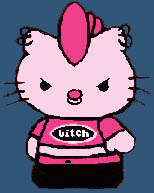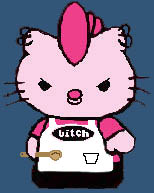Yearly Origins Awards comments
I don't really have all that much to say about the Origins Awards this year. I'm very happy to be disengaged from them at this point. I know the volunteers are trying to keep them afloat and turn them around but I also see that over the last five years they've been eroded terribly and this year's performance is not significantly better than the outcomes of previous years. Unfortunately, the awards are now operating under the burden of hostility, disenfranchisement, and other baggage left over from the bitter and divisive public struggles to control the awards that dominated the process for the first half of the decade (culminating in the disgraceful behavior of the Firm, Fair, and Friendly faction Ryan Dancey and his cohorts helped into power at GAMA a couple years ago now). Still, when I saw this comment in the thread about the awards on RPG.net, I was moved to respond.
I don't think that the requirement to send it product is a barrier. At least, this allows relatively unknown publishers to get a chance. Not having the funds for a full-blown ad campaign doesn't mean the game must be bad, but it definitely means that the game does not sell well, which decreases the chance that the judges actually know the game.
I don't expect to have more to say and I don't mean to slag on the current batch of volunteers, but I remain convinced that the Origins Awards are in poor shape and nothing that has happened over the last couple of years has given me any inspiration to believe that the situation will improve. Certainly not electing Phil Lacefield as the Academy Chair (I bring him into this as he was the only other candidate willing to run for the position against the current chair last year). The Origins Awards need astute, qualified leadership first and foremost and the dearth of candidates for that crucial aspect of the process alone is enough reason to despair for the future of the awards. The other flaws are just so many more nails in the coffin.
I don't think that the requirement to send it product is a barrier. At least, this allows relatively unknown publishers to get a chance. Not having the funds for a full-blown ad campaign doesn't mean the game must be bad, but it definitely means that the game does not sell well, which decreases the chance that the judges actually know the game.
There are still many, many deep problems with the Origins Awards and I just don't have the internal fortitude to actively care about the outcome anymore. Still I think it's worth noting that in the past all that was required for a product to be considered for the award was that either the company that published it OR one of the people who had something to do with its creation (author, editor, artist, graphic designer, etc) put it up for consideration. At the time, that was considered to be too much to ask. Companies couldn't be bothered to even tell the committee "Hey, we released this product and it should be on the list of things you're considering."
At the time that process was in place, there was the inevitable hue and cry when something got overlooked, usually because no one involved in its production cared to make sure it was on the list. In fact, allowing people who had a hand in creating the game to submit the product information themselves was done to address the issue of having an incomplete list of potential products to consider. All that did was open up this gigantic public power struggle from a tiny handful of people whose sole concern was how to use the Origins Awards as the best marketing tool they could (whose goals were at odds with the people concerned with creating respectable awards that recognized excellent games.)
Opening up the nominations to the general public was no better, as this resulted in the nomination of many games that were not eligible by the rules of the awards (not released in the right time frame, not released in the right format, you name it). Still, that did not stop people from complaining over the perception that their personal favorite game was overlooked. ("What?! Where is My Life With Master?!" [My Life With Master was on last year's ballot.] "These awards suck." )
Now we're in a phase where not only do companies have to submit the information about their games (which was struggle enough to get them to knuckle down and do) but they have to actually send multiple physical copies in for review. The requirement that those judging the product actually see the product is not a bad one, but requiring a company to do that just gives already unenthusiastic participants another reason to say "Why bother?" and results in potential nominee lists even more anemic than they were when this trend toward constant revisionism started.
Worst is the fact that the awards change EVERY SINGLE YEAR. Not just the process, but from top to bottom: who participates, who judges, what awards are given out, how they're given, every damn thing. The categories of the awards have changed every year... and despite all the outraged cries for "transparency" a few years ago that gave us the Origins Awards Task Force, an eviscerated Academy and the new (ever-changing) process, there still appears to be little rhyme or reason to the changes that continue to happen like clockwork every year.
People who care about what happens to the Origins Awards need to consider many things going forward if there is any hope whatsoever to pull them out of their current tailspin. Why do the names and categories of award change every year? Why are there EIGHT "Vanguard" awards given in a year when there are only THIRTEEN juried awards given across all categories of games? Why is the "Game of the Year" given to an expansion and not, you know, an actual complete game? Why do none of the juried awards recognize any of the same products as the publicly voted Gamer's Choice awards? And, of course, the inevitable questions about why products that are quantifiably better (or at least "worthy") in the minds of the public continue to be left out of the consideration. Until issues like these can be addressed, all the category shuffling and deck chair rearranging isn't going to make a lick of difference.
I don't expect to have more to say and I don't mean to slag on the current batch of volunteers, but I remain convinced that the Origins Awards are in poor shape and nothing that has happened over the last couple of years has given me any inspiration to believe that the situation will improve. Certainly not electing Phil Lacefield as the Academy Chair (I bring him into this as he was the only other candidate willing to run for the position against the current chair last year). The Origins Awards need astute, qualified leadership first and foremost and the dearth of candidates for that crucial aspect of the process alone is enough reason to despair for the future of the awards. The other flaws are just so many more nails in the coffin.






for this post
Leave a Reply